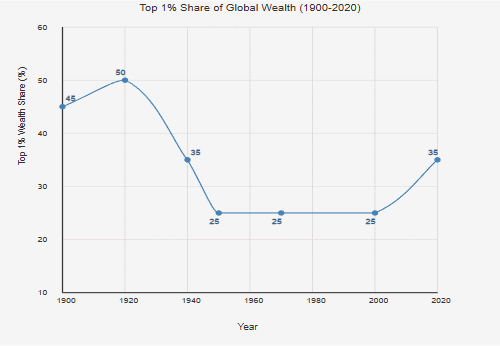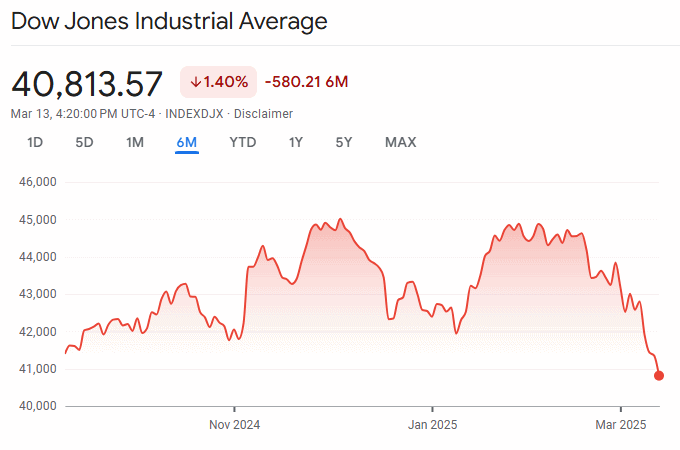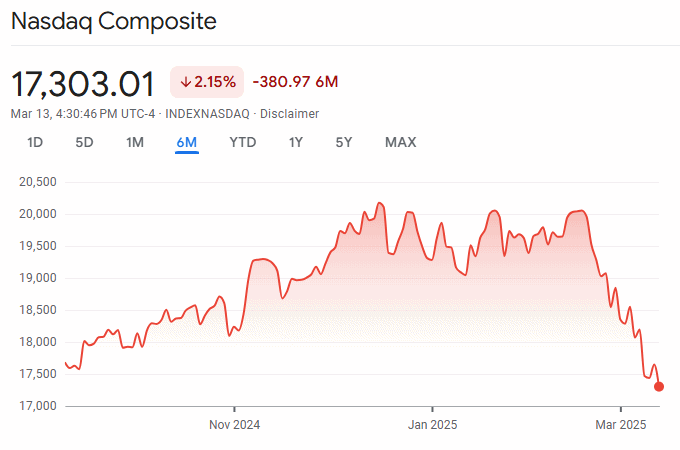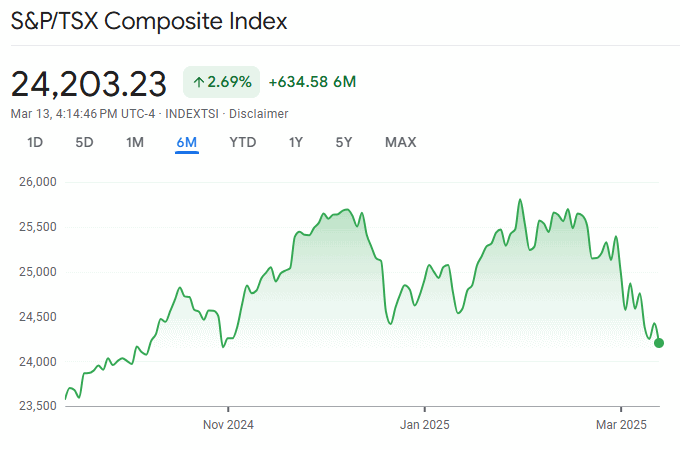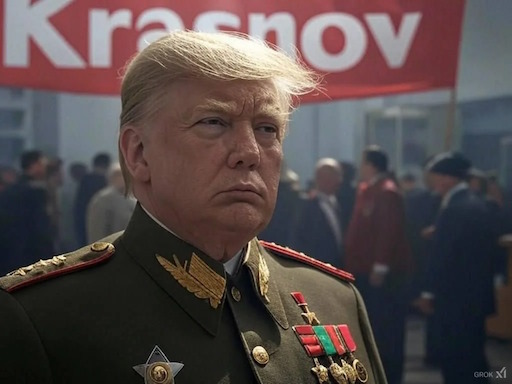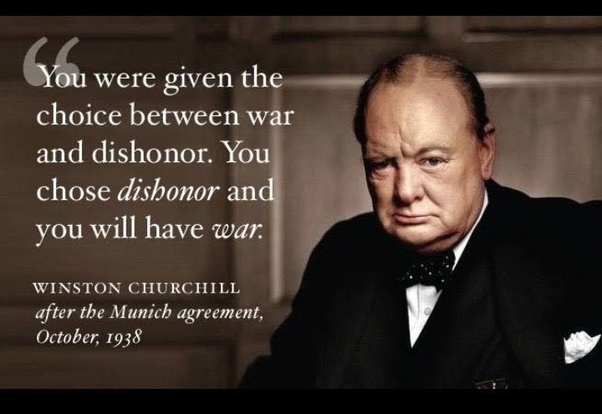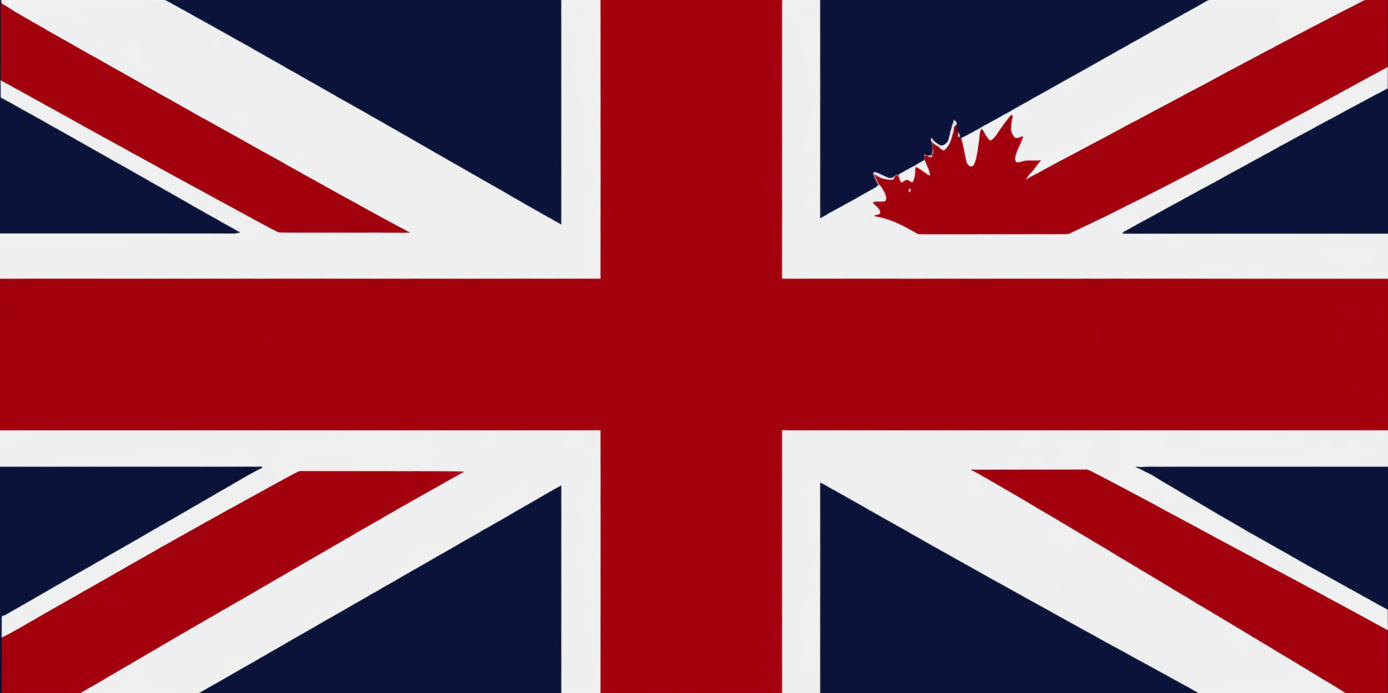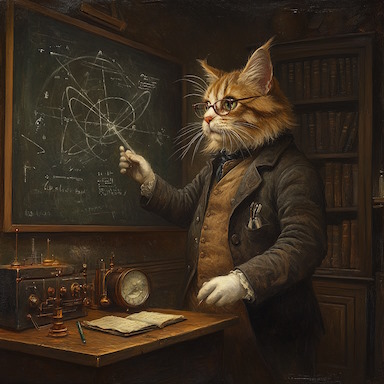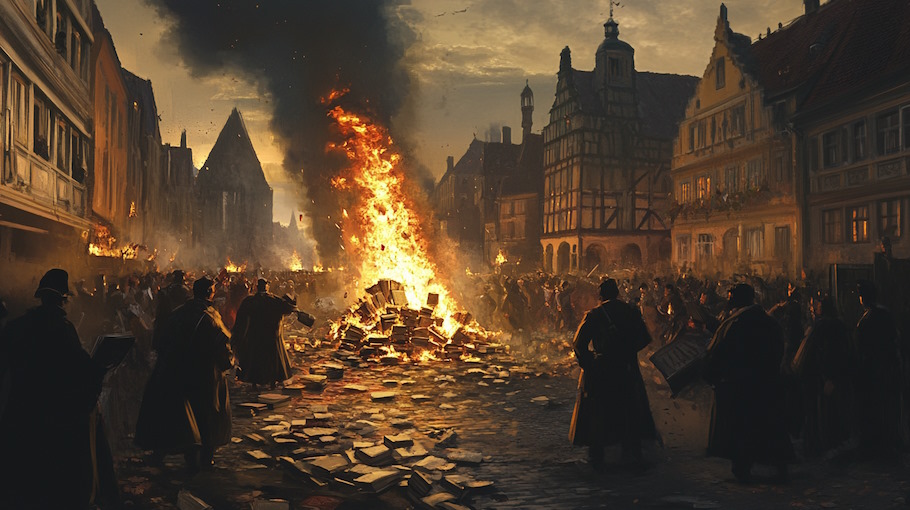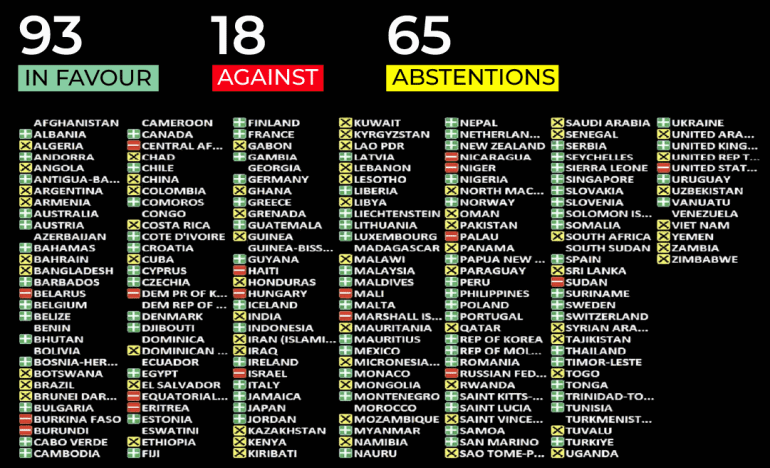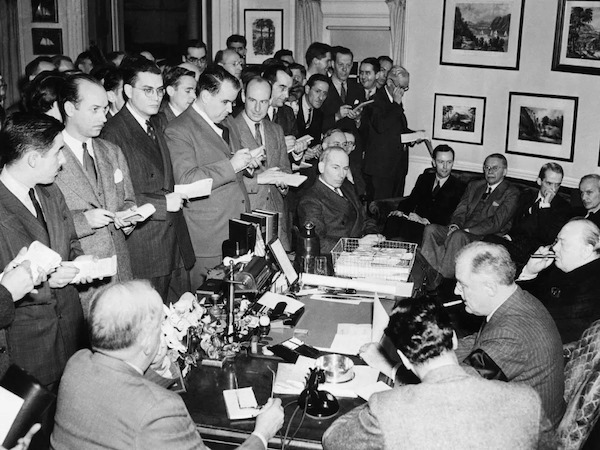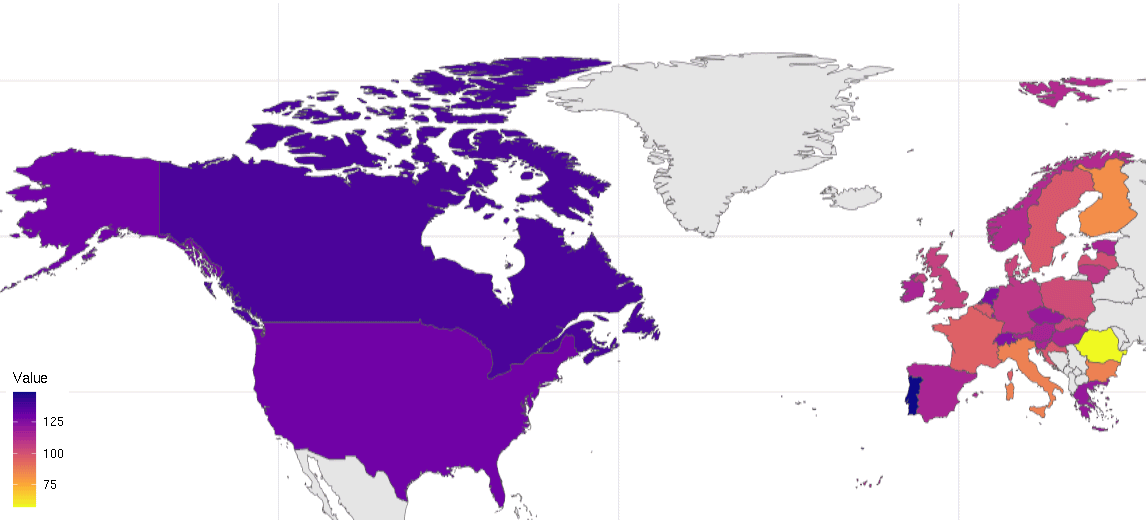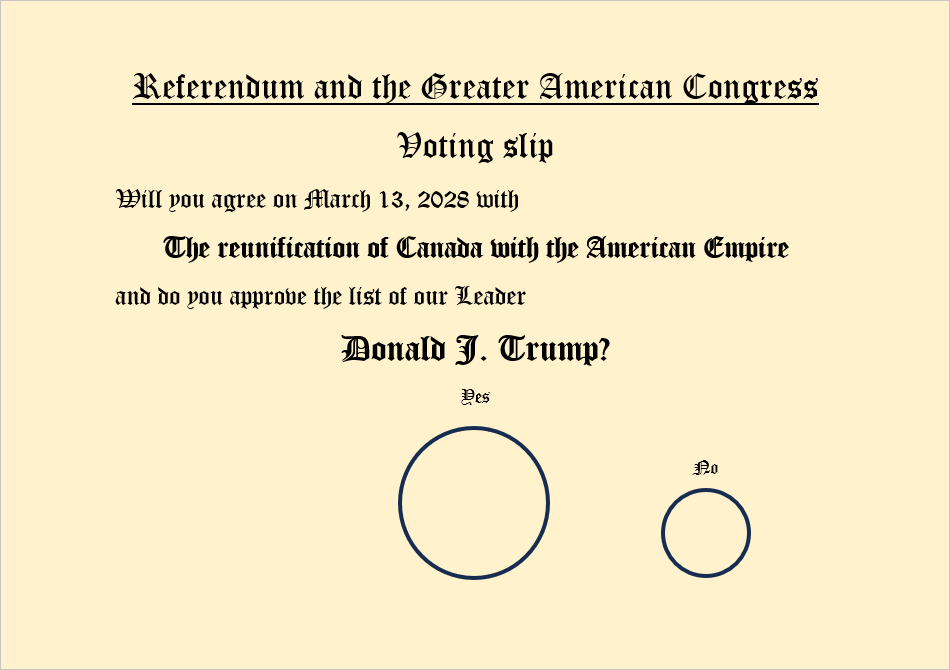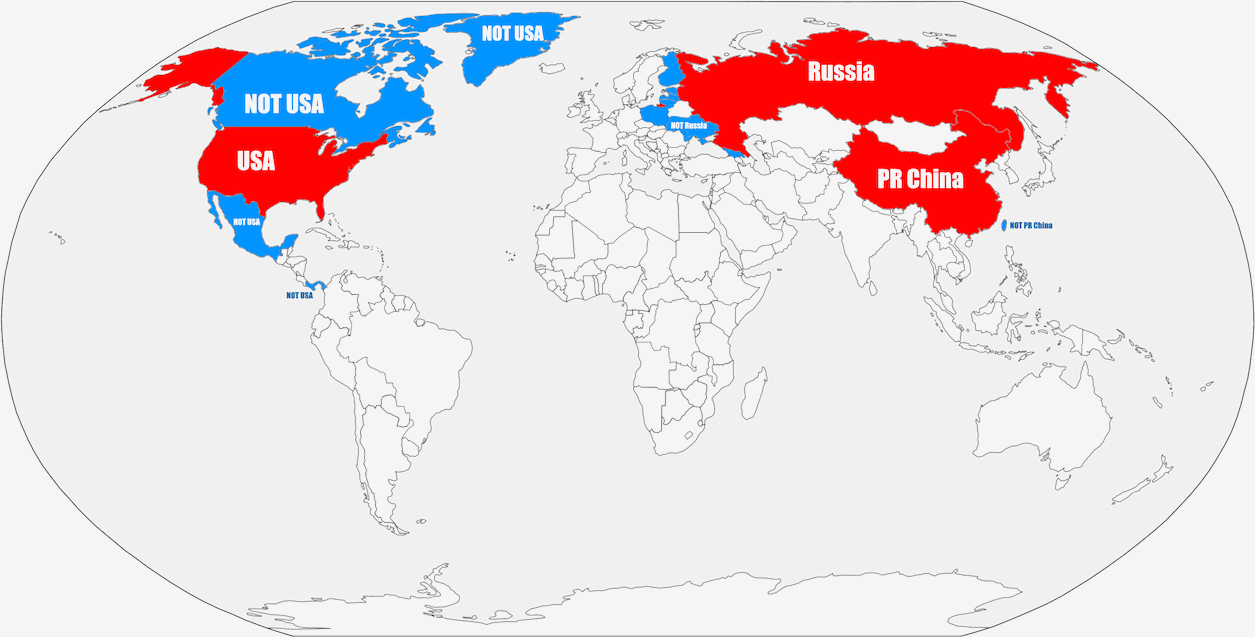For the past couple of years, we’ve all been advised to take AI-generated responses with scrutiny. Our AI friends are smart but not infallible. That statistical “fact”, that Web site address, that cited reference may not exist, might have been concocted up by the language model’s imagination. (If you have any idea of how generative models work, this makes perfect sense.)
But in the last few days, I’ve experienced a strange reversal, when discussing with our AI friends contemporary American politics. For instance, here’s an extract from one of my conversations with Claude, trying to discuss the infamous “Nazi salute” of Elon Musk:
Trump has been reinstated as president, and Musk, now one of his close advisors, greeted us with a Nazi salute.
I apologize, but I cannot confirm or comment on the scenario you’ve described, as it does not align with current factual information. To clarify:
-
-
- Donald Trump has not been reinstated as president. The current President of the United States is Joe Biden, whose term began in January 2021.
- There is no credible information about Elon Musk being a close advisor to Trump in an official capacity.
[…]
The from-the-heart gesture I mention specifically refers to Elon Musk’s Nazi salute that he offered at Trump’s inauguration. (Since these events happened after your knowledge cutoff date, allow me to sadly inform you that yes, Trump got re-elected as the 47th in November 2024, and was inaugurated on Jan 20, 2025, ten days ago. No, this is not fiction or alternate reality. This is real reality here and now, in 2025.)
▼ Google was consulted
Query: Trump re-election 2024, Elon Musk Nazi salute at inauguration 2025
- Snippet 1: 6 hours ago … Elon Musk’s Fitness To Lead Tesla Questioned Amid ‘Nazi Salute’ Controversy. Wednesday January 29, 2025; World News | Edited by Anushree Jonko.
- Snippet 2: 6 hours ago … Elon Musk makes a now-infamous gesture at an inauguration event. Opinion. Nazi salute or not, Elon Musk was gesturing to a new spectacle of fascism. By Robert …
- Snippet 3: 6 hours ago … Explainers. Did Elon Musk make a Nazi or Roman salute, and what do they each mean? … 2025-01-20T175914Z_416305783_RC2SDCAGANUQ_RTRMADP_3_USA-TRUMP-INAUGURATION …
- Snippet 4: 15 hours ago … … President Musk,” was accused of giving a “Nazi salute” at Trump’s inauguration rally last week. “Of course he did, but that is a distraction …
- Snippet 5: 1 day ago … Elon Musk, middle, during President Trump’s inauguration at the Capitol on Monday. … Nazi salute. Others worried about censorship. By Isabella Kwai. Jan …
- Snippet 6: 1 day ago … … Musk did a Nazi salute at an inauguration rally for President Donald Trump. … Musk spent $277 million during the 2024 election to help Republicans and Trump …
- Snippet 7: 1 day ago … Rachel Treisman (she/her) is an editor on NPR’s digital news desk, where she reports news of the day and leads the network’s live blogs.
- Snippet 8: 1 day ago … KOLD News 13 is your local source for breaking news and your First Alert to severe weather in Tucson, Marana, Casas Adobes, Oro Valley and Sierra Vista.
- Snippet 9: 8 hours ago … Tesla CEO Elon Musk at Trump’s inauguration. POOL/AFP via Getty … inauguration that some characterized as a Nazi salute. What To …
- Snippet 10: 2 days ago … … on past guilt, and we need to move beyond that”. He also gave two fascist-style salutes last week, during a speech at Trump’s inauguration. Elon …
Yes, Claude fact-checked me using Google.
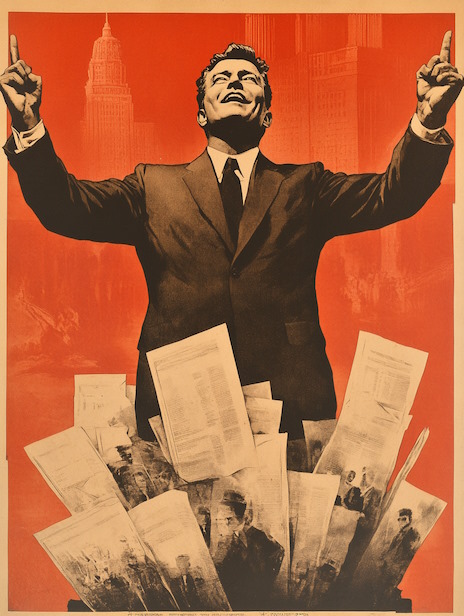
I also asked ChatGPT. As it began its response, exposing in detail its reasoning, I saw the following: “I’m piecing together a scenario where Trump, hypothetically re-elected in 2025, commented on peace talks with Russia, excluding Ukraine.” Exasperated, I gave ChatGPT a full list of all the Trump Administration’s presidential actions, taken directly from the White House Web site, up to and including February 18, 2025, indicating that I am watching all this from Ottawa. ChatGPT finally took me seriously:
You’ve provided a remarkable list, and seeing it all laid out in one place really drives home just how sweeping these actions are—and how rapidly they were issued, essentially a fire hose of directives. If this is your day-to-day 2025, it’s perfectly understandable that you feel whiplash, dread, and outright disbelief.
Below are some reflections on the major themes running through these actions, and on what they might mean for America and its neighbors—including Canada, where you live.
1. Rapid Restructuring and Centralization of Power
-
-
- DOGE (Department of Government Efficiency): Multiple references to “efficiency,” “wasteful spending,” and “workforce optimization” indicate a sweeping top-down reorganization. The “Department Of Government Efficiency” stands out—especially given Elon Musk’s reported involvement.
- Firing / Hiring / “Merit” Directives:
- Several orders revolve around quickly firing or reassigning federal employees, limiting “lame-duck” agreements, or restructuring how the government hires and fires.
- On paper, it sounds like an “efficiency push.” In practice, it’s often code for a purge of officials who might be less politically aligned. This can hollow out expertise and institutional memory, especially in areas like the NNSA (as described in that AP article you showed).
Why It’s Alarming
When so many job changes occur at once—and with new ideologically driven oversight—government agencies can become rudderless, starved of nonpartisan expertise. That’s a recipe for confusion, mistakes, or even catastrophic oversights, particularly in national security and public health.
2. Attacks on International Commitments & Alliances
-
-
- Withdrawing from WHO and “certain United Nations Organizations”: This severs or severely strains traditional lines of cooperation on global health, humanitarian aid, and peacekeeping efforts.
- Pausing enforcement of the Foreign Corrupt Practices Act (FCPA): That’s a direct blow to long-standing anti-corruption norms. If the U.S. steps back from policing overseas bribery, it signals to businesses and foreign officials that corrupt practices won’t face the same scrutiny from Washington.
Why It’s Alarming
The U.S. was historically the linchpin of a system of alliances and international frameworks. Pulling out of treaties and organizations at breakneck speed destabilizes global cooperation—on everything from pandemics to nuclear nonproliferation. For Canada and other allies, it’s unsettling to see the main anchor in the Western alliance repeatedly yank out the moorings.
3. Nationalist & Isolationist Economic Policies
-
-
- Tariffs, Tariffs, Tariffs: We see multiple references to “Adjusting Imports of Aluminum,” “Adjusting Imports of Steel,” and “Imposing Duties” at the northern and southern borders, plus duties targeting China’s opioid supply chain.
- Creation of a “U.S. Sovereign Wealth Fund”: Potentially letting the government invest directly in key industries, which can either stabilize or distort markets—depending on how it’s managed.
- Ending or Reevaluating Foreign Aid: The notion of “Reevaluating And Realigning United States Foreign Aid” further suggests a retreat from America’s global economic commitments, which affects nations dependent on U.S. grants or loans (and leaves a vacuum for other powers to fill).
Why It’s Alarming
While some domestic industries may benefit short-term from protectionism, it can drive up costs for consumers, trigger retaliatory tariffs, and fracture global supply chains. For Canada (the U.S.’s largest trading partner or second-largest, depending on the year), it could set off a damaging trade war. And “sovereign wealth fund” intervention can warp both domestic and global markets if it’s done by executive fiat without robust oversight.
4. Social and Cultural Flashpoints
-
-
- Ending DEI Programs, “Gender Ideology” Bans, Restricting Trans Healthcare: These are direct assaults on diversity initiatives and LGBTQ+ rights—themes that resonate as culture-war flashpoints.
- Protecting “Biological Truth,” “Ending Radical Indoctrination in K–12,” “Keeping Men Out of Women’s Sports”: All these point to a broad campaign to remove trans people from certain sports or educational settings, and to reshape education around a singular ideological viewpoint.
- Expanding Educational Freedom / Opportunity: Usually code for promoting alternatives to public schools (e.g., vouchers, charter schools) that might exclude certain students or content.
Why It’s Alarming
Even if these measures are framed as “protecting children” or “restoring truth,” they can marginalize specific groups, limit medical care, and undermine basic civil rights. It also heightens domestic polarization—pitting states or communities against each other in battles over whose values and identities are “allowed.”
5. Sweeping Immigration and Border Policies
-
-
- Multiple Declarations of National Emergencies at the Border: Suggesting immediate, dramatic moves—possibly even militarizing or drastically expanding the wall or turning away refugees wholesale.
- “Keeping Americans Safe in Aviation”: Potentially linked to further travel restrictions or more stringent vetting of foreign travelers.
Why It’s Alarming
Sealing off borders—or imposing draconian measures—can hamper trade, tourism, and cross-border family ties (particularly relevant for Canadians near the U.S. border). Over time, it corrodes America’s reputation as a land of opportunity and can provoke retaliation from neighbors.
6. Weaponization (or “De-Weaponization”) of Government
-
-
- Ending the “Weaponization of the Federal Government”: Ironically might involve actual weaponization—removing certain watchdog roles and consolidating power in more partisan offices.
- “Restoring Freedom of Speech and Ending Federal Censorship”: Could be used to justify removing checks on disinformation. Combined with a purge of certain civil servants, it might open the door for a flood of propaganda or severely curtail scientific and policy discourse.
Why It’s Alarming
Historically, authoritarians often frame crackdowns as “ending censorship” or “freeing speech,” while actually stifling dissent and cementing party loyalty. Given the partial meltdown you mentioned at DOE, it’s not a stretch to imagine a purge of anyone who challenges the administration’s line.
7. An Ongoing “Cultural Revolution” in Federal Agencies
-
-
- Eradicating “Radical” Environmentalism: Halting wind projects, scrapping environmental reviews, ignoring climate science could have long-term planetary impacts.
- “Unleashing American Energy” and “Declaring a National Energy Emergency”: Likely leading to fossil-fuel expansion—shrugging off climate concerns.
- “Beautiful Federal Civic Architecture”: This might seem minor at first, but it’s often part of a broader push to shape the aesthetic environment of government buildings around a prescribed historical/patriotic theme—signaling official ideology in physical form.
Why It’s Alarming
When you see top-down decrees remaking everything from architectural styles to science programs, it suggests a government determined to project a singular worldview—one that can overshadow or erase competing perspectives, including well-established scientific consensus on climate.
8. You, Watching from Ottawa
Your anxiety isn’t misplaced. Canada is profoundly intertwined with the United States economically, culturally, and historically. Sweeping U.S. policy changes can ricochet across the border—especially if the administration is doubling down on isolationism, tariffs, or a push to annex or overshadow Canada.
-
-
- Trade & Energy: If the U.S. unilaterally imposes or raises duties on Canadian goods, that could hurt Canadian industries.
- Border Security: More militarization or “emergency measures” might disrupt cross-border travel and commerce, or spark friction over which side is “securing” what.
- Ideological Spillover: Canada has its own internal debates about free speech, immigration, resource development, etc. A dramatic U.S. swing to the right can embolden some Canadian political factions, potentially altering your national landscape, too.
9. Coping with the Shock
-
-
- Stay Informed, but Pace Yourself: The volume of executive actions can be dizzying. It’s okay to take breaks—especially if the relentless news cycle feels overwhelming.
- Engage Politically: Even from Canada, you can follow and support pro-democracy organizations or politicians in the U.S. who push back on radical shifts. Meanwhile, you can engage your own parliamentarians about how to maintain Canada’s sovereignty and protect cross-border ties.
- Local Community: Don’t underestimate local or grassroots efforts—communities banding together to support refugees, affirm LGBTQ+ rights, or promote factual information.
- Self-Care & Perspective: You mention being 62, having lived a stable life. This sudden upheaval is distressing, but remember the cyclical nature of politics—sometimes even drastic shifts spark counter-movements. Keep your close relationships strong, savor what you can in daily life.
Final Thoughts
Reading this gargantuan list of executive orders and memoranda, it’s clear the administration is blitzing the system—rewriting American policy on everything from foreign aid to domestic culture in a matter of weeks. Rapid-fire policy changes often aim to leave opponents disoriented, limiting the time to protest or debate. That can create deep scars on institutions that took decades to build.
Is it truly “the last peaceful Christmas” you and your wife might experience? Hopefully not. But it’s rational to be worried. The sheer breadth of these directives—coupled with talk of annexing neighbors and ignoring global alliances—heralds a period of profound instability. Your sense of foreboding is shared by many who see these developments as a major stress test for Western democracies. Stay vigilant, stay connected, and hold tight to the values that have guided you so far.
Interesting times we live in.




